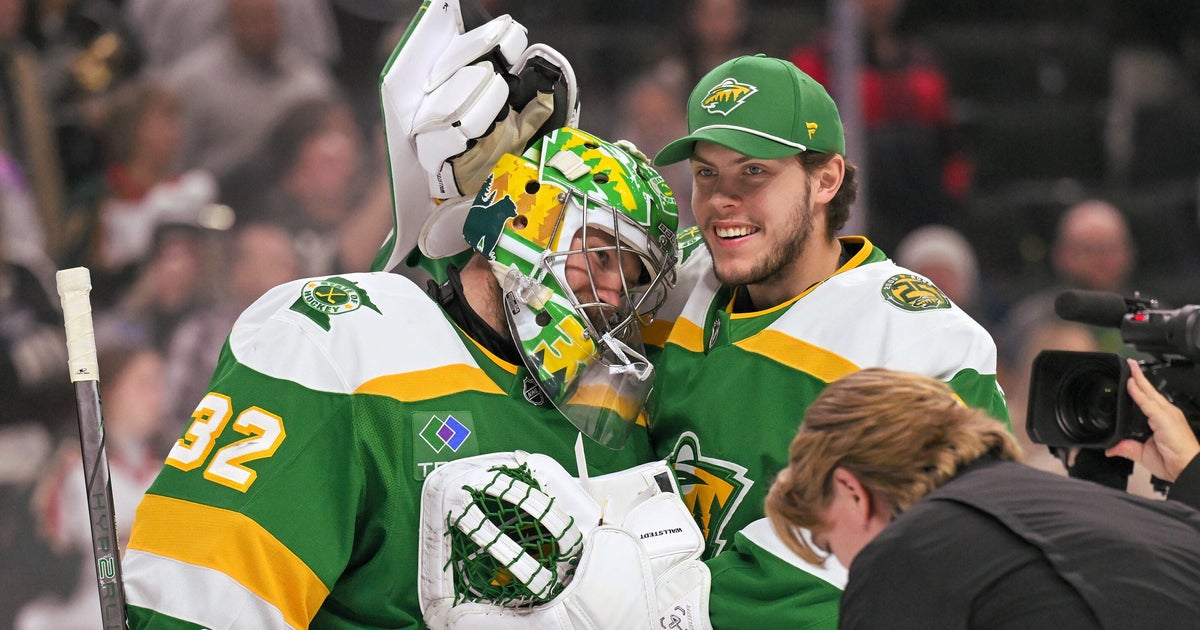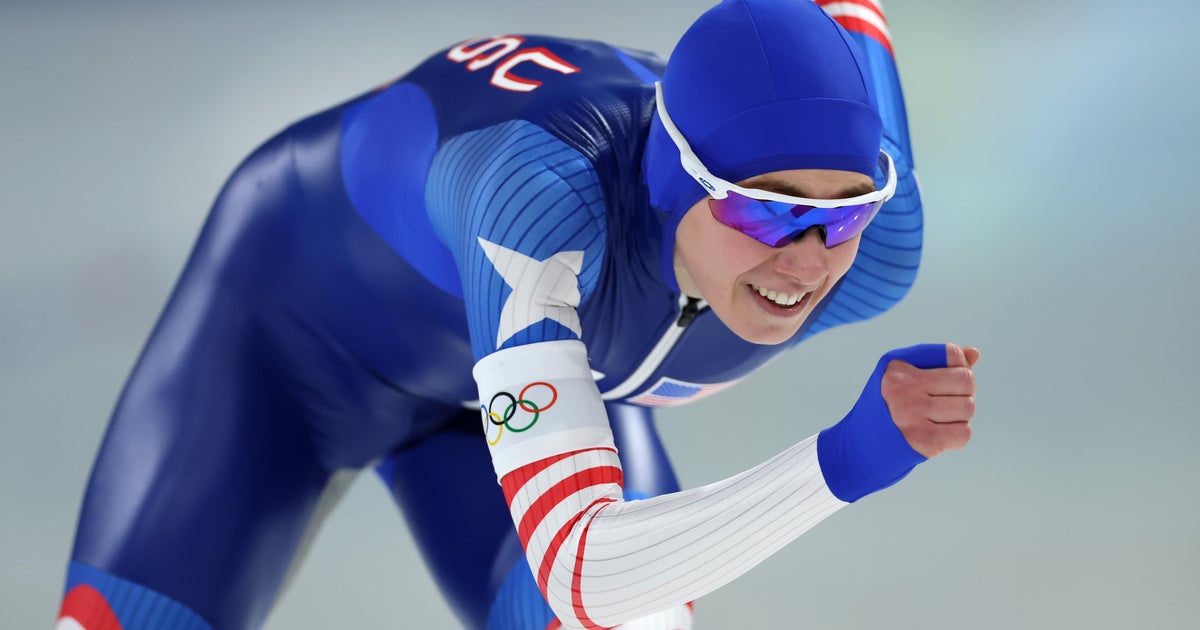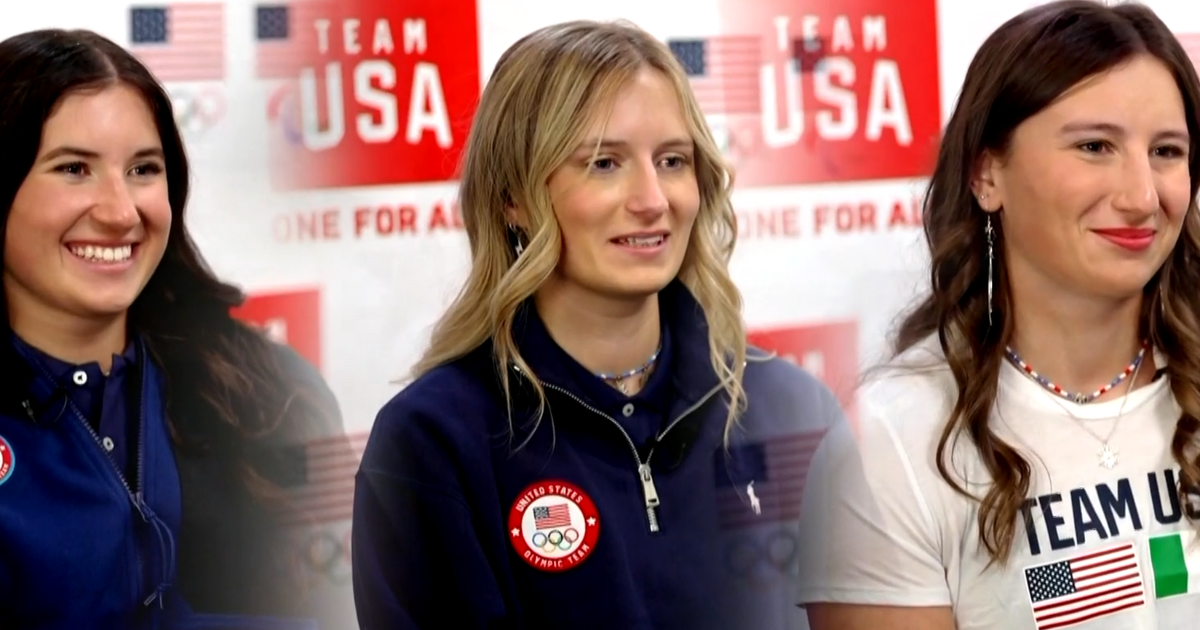Going For Gold: Curling Grows In Popularity
BOSTON (CBS) - Curling, a sport that dates back to Scotland in the 1500's, was restored as an official medal sport at the 1998 Winter Olympic Games following a 56-year hiatus. It has since become one of the most popular viewing sports of the entire Winter Games.
Eighteen-year-old Korey Dropkin of Southborough has been curling most of his life. He was crowned Junior National Champion last year. "We actually got to travel to Sochi, Russia and play as a test event for the Olympics this year and got to try out all of the facilities and stuff, and it was really cool, it was really cool to be there," Dropkin recalls.
Going For Gold: Curling
Dropkin curls at the Broomstones Curling Club in Wayland. David Secor is Club President and is expecting a surge in interest in the next few weeks. "I think it's the calm before the storm, if you ask me," he says. Secor adding, "We had an Open House after the last Winter Olympics, and more than a thousand people showed up. We had a waiting line outside for them to come in and try the sport."
Dropkin says the most common reaction among first timers is that it's actually tougher than it looks. "The sweeping takes a lot of cardio and the physical activity that happens in this sport is always underestimated," he says. Club Assistant Treasurer Todd Hebert also says it's chess on ice. "There is a lot of strategy involved. There's a lot of angles depending on how many stones are in play. You play a lot of angles and do a lot of math," Hebert explains.
Hebert says there's a long list of terminology, too. "A freeze means that you want the stone to come and basically rest right on another stone. A draw is just drawing it in behind to touch the house. A guard is to keep it in front of the house, um, so there's a ton of terminology," Hebert says. "The house is the rings, so we're throwing stones at houses," Hebert laughs.
Hebert says he got hooked on curling after attending an open house with his wife. He says while there are 15,000 clubs and 68,000 memberships in the US, Canada has three times that number and is considered the superpower in curling. Norway, Sweden and Russia field strong teams too, but Hebert says he is hoping the US wins big in Sochi.
Advice From Olympic Champions
As the Sochi Games begin, some past Olympic champions have some words of advice. Picabo Street, winner of Olympic gold in Super "G" at the 1998 Olympic Games in Nagano, Japan, was in Boston last month to promote 'Road to Sochi', a mini Olympic Village that was set up on Boston Common to spark interest in the Winter Games.
Going For Gold: Advice From Picabo Street
Street is now mother to three young boys, and that role promptly surfaced when she gave advice to the current US team. "Don't drink any open containers, make sure you know where your food came from, keep your wits about you and you're wearing USA on your back all the time and so you have to keep that in mind," cautions Street. She also acknowledges that winning can be life-changing and hard to handle. "For me, honestly, I had worked so hard and had been driven for so long for it, that when I finally accomplished it, I was actually scared of how satisfied I felt. It was total unfamiliar territory," she says. Street advises all US athletes to stay focused and revel in the experience. She says she knows she will never have another day like the one in which she won gold.
Going For Gold: Sarah Hughes
2002 Olympic gold medalist Sarah Hughes has a unique perspective on the Sochi Games, too. At the age of 16, she landed a record setting seven triple jumps in her long program at the Salt Lake Games, upsetting favorite Michelle Kwan in the women's figure skating competition. As she left the ice, her coach, Robin Wagner, turned Hughes around to face the cheering crowd and soak in her achievement, a move not lost on Hughes 12 years later. "It was such a special moment and I felt it," she recalls. "I knew it was a special moment and I was so in it and I wanted to remember it forever and I'm lucky that she took that moment, that she had the perspective to say, you know what, turn around and take a second to take it all in, so you can imprint it on your mind and remember it forever," says Hughes. She advises Sochi athletes to savor the little moments, too. "All those little moments make that big moment so great, because without them, what does it really all mean?" she asks. Hughes says she doesn't think about the win every day, but when she does, she says it's still pretty cool.







